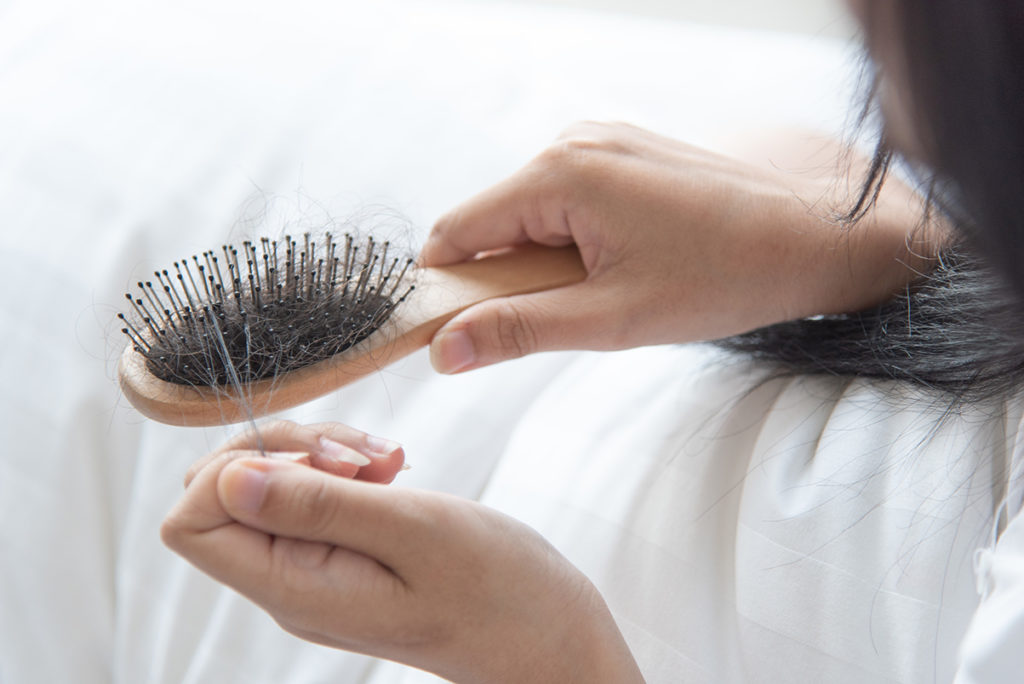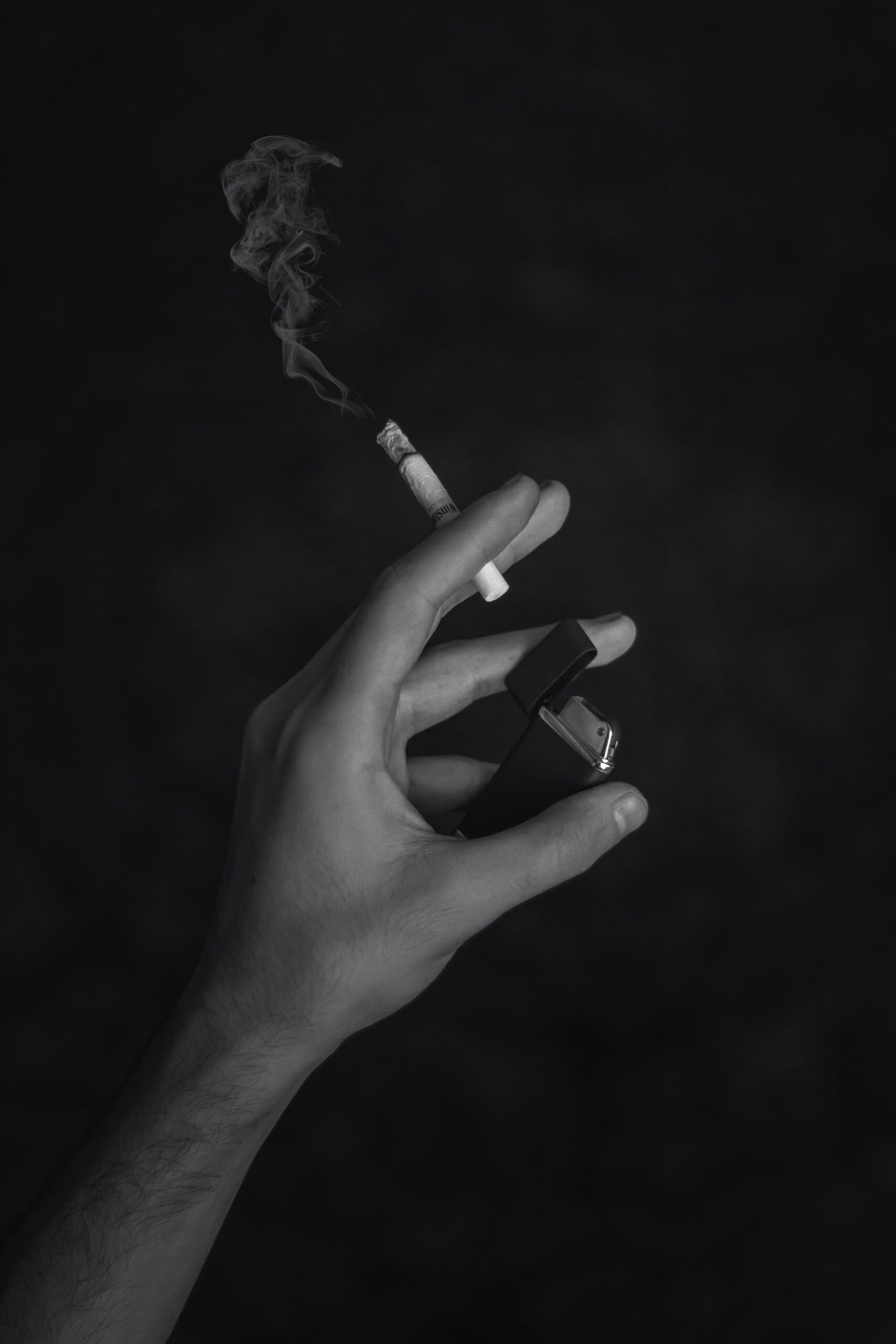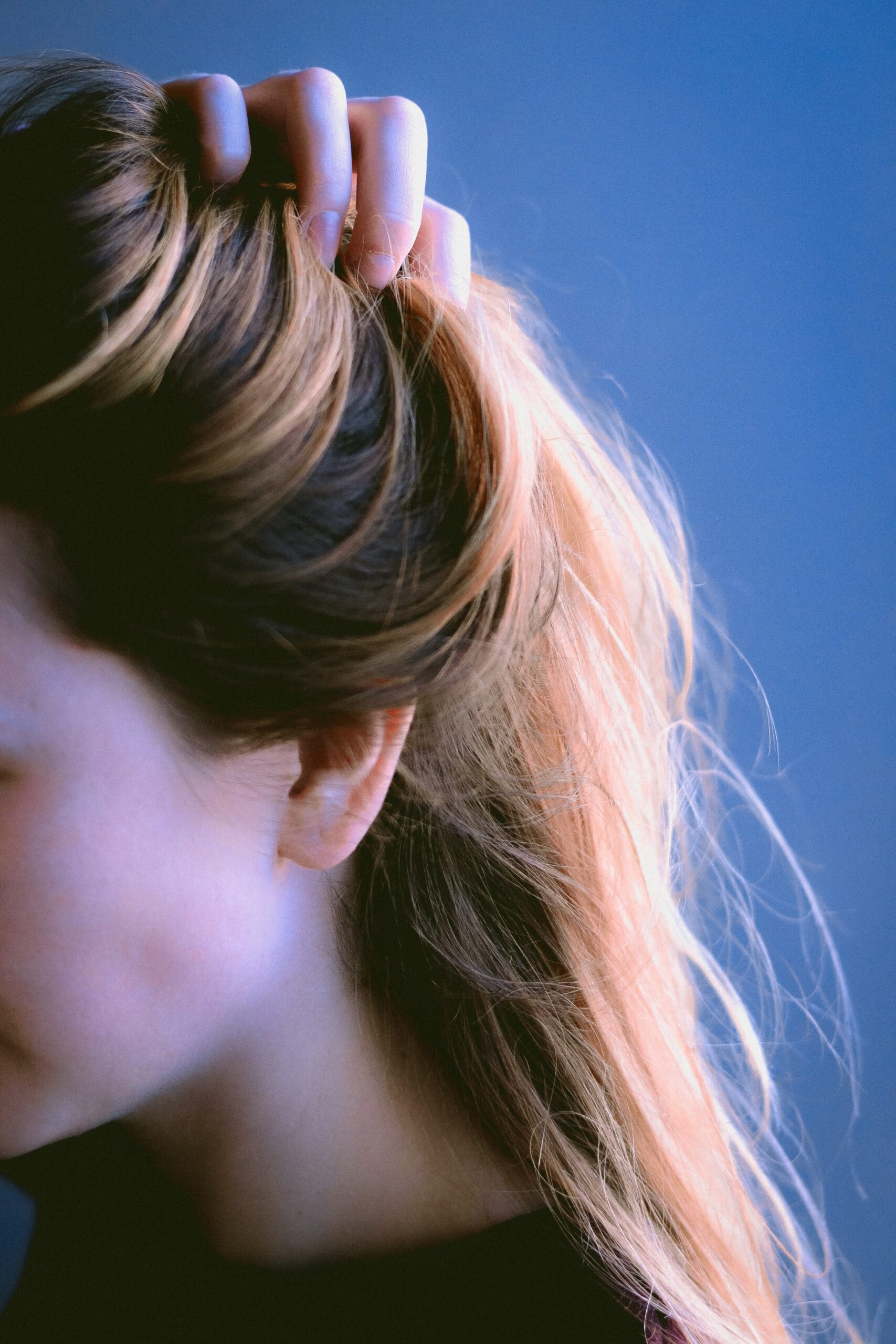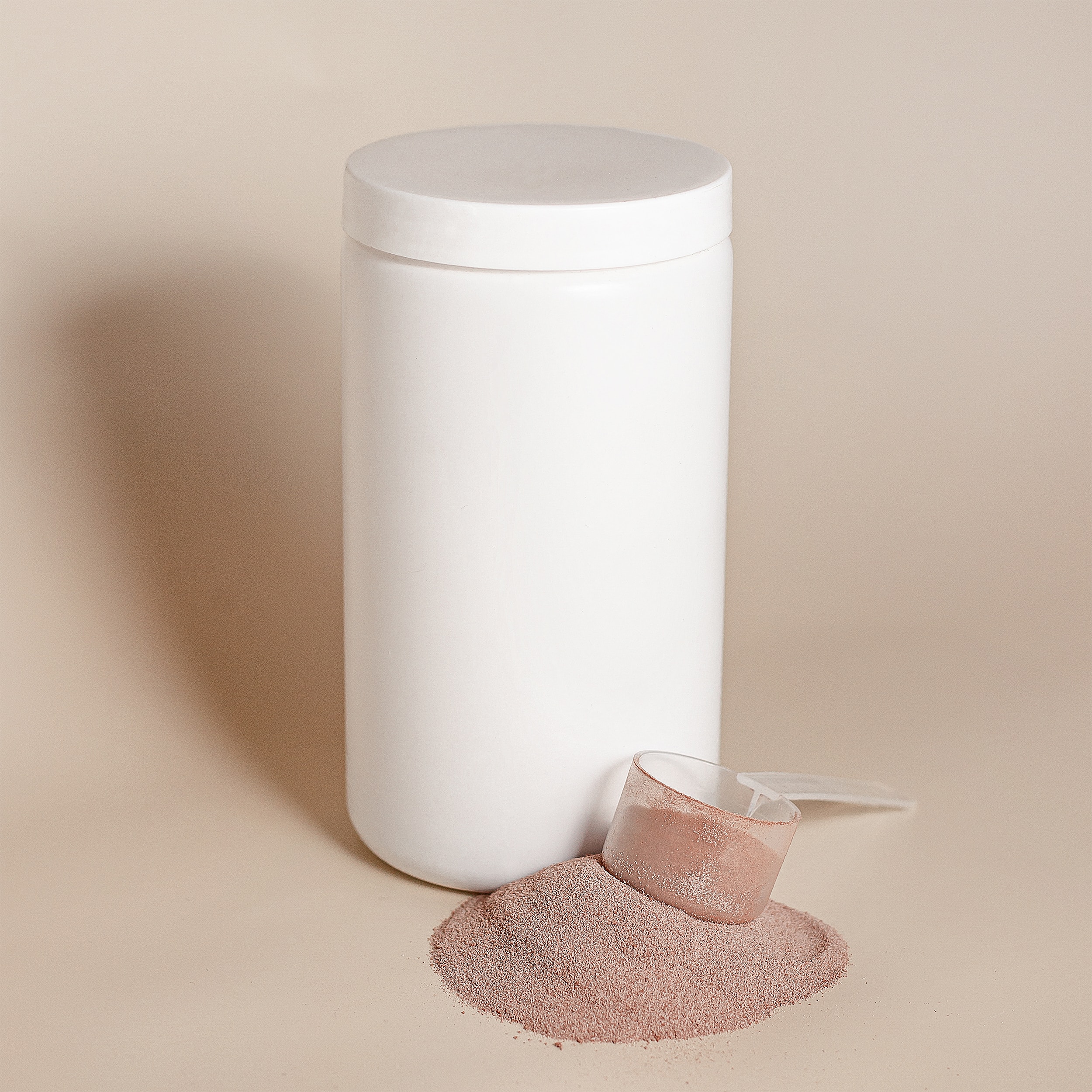
Hair loss during the menopause
21st May 2021
Is hair loss during menopause common?
Hair loss during menopause and perimenopause (i.e., around menopause) is relatively common. More generally, losing some hair volume is a natural part of the ageing process. For example, it is estimated that around 40% of women aged 70 years or over experience female-pattern baldness – the most common type of hair loss, which is thought to be inherited[1].
How does menopause-related hair loss present itself?
Most women experience overall hair thinning rather than noticeable bald spots, which is typically around the front or the crown of the head. However, some hair may also fall out in larger clumps during brushing and showering.
Why does menopause cause hair loss?
Menopause causes oestrogen levels to drop, and as oestrogen is a hair-friendly hormone that helps to keep hair in the growing phase, the decreased levels mean that the hair grows more slowly and becomes thinner.
The drop in oestrogen can also mean the effects of androgens – male hormones – can increase. These hormones shrink hair follicles, making them produce increasingly more fragile hairs and eventually none at all.
Are hormones the only factor when it comes to menopausal hair loss?
No, although hormones may be the biggest factor in menopausal hair loss, for some women contributing factors such as stress, genetic predisposition or nutritional deficiencies can also make shedding worse.
Other medical conditions, such as hyperthyroidism or hypothyroidism, can also cause hair loss, so it is always worth visiting a GP to check your overall health if you are worried.
Are there any ways to manage menopausal hair loss?
Eating a healthy, balanced diet is crucial at every age. Make sure you are eating plenty of whole grains, good fats and vegetables, as this can certainly help – particularly if your hair loss has been exacerbated by your diet.
Keeping your stress levels in check can also help to balance your hormone levels. As mentioned, stress can raise androgen levels in the body, so finding something that can help you relax is a good idea. Many women find yoga, breathing exercises and keeping active can be particularly effective.
What treatment options are available for menopausal hair loss?
There are many treatments available that may help combat menopausal hair loss. Non-surgical solutions include Minoxidil lotion, foam and even tablets. Finasteride is an oral medication licenced for men’s hair loss, however, in some menopausal women, it may help as well.
Low-Level Laser Therapy, where the scalp is bathed in light to encourage cells to produce more protein, can also work nicely on thinning hair. Another popular option is Platelet-Rich Plasma therapy, which involves a patient’s blood being re-injected into their scalp to stimulate growth.
Although many women do find that the shedding will gradually slow down, if you are looking for a permanent solution to thinning hair, hair transplant surgery can be very effective.
If menopausal hair loss is getting you down, why not get in touch with our team to find out how we can help?


